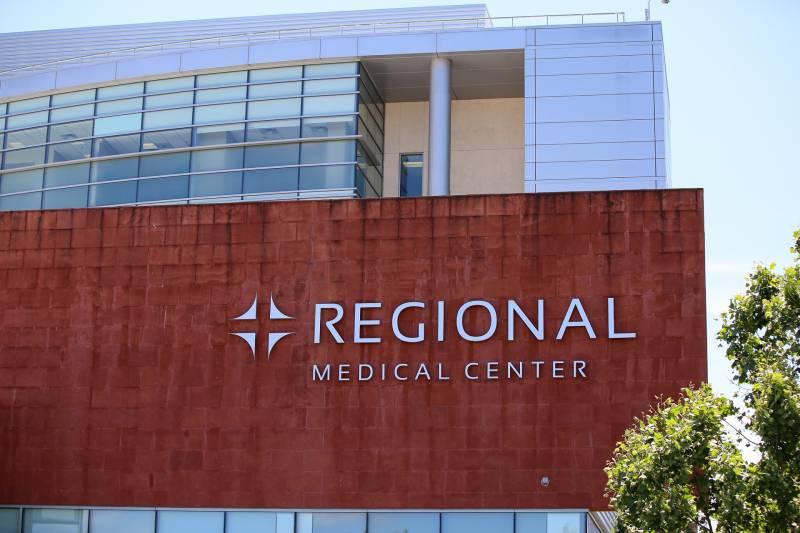In a statement emailed to KQED, the public health agency said it supports equitable access to hospital care for all communities but noted the law only requires CDPH and other agencies to be notified about hospitals’ intent to cut services or close departments.
“While any reduction of supplemental services is concerning, CDPH cannot compel facilities to provide them,” the statement said. “CDPH is monitoring this situation, and basic services at [Regional Medical Center] continue to be provided.”
The cuts “will have negative impacts on health care services for disadvantaged communities in East San José and further strain the County’s health care system,” the legislators wrote. “Our delegation has serious concerns about how this will cause further harm to historically underserved and marginalized members of our communities, potentially leading to preventable fatalities.”
While the legislators sent their letter to CDPH and got a response within about a week, the County Board of Supervisors approved sending a similar request to intervene to CDPH in April, though county staff told KQED the county has not yet received an official response.
As the clock on the closures and cuts at Regional Medical Center ticks, the denial from CDPH further narrows a slim list of potential reprieves for those hoping to avert the loss of services.
Since May, patient advocates, doctors, nurses and elected officials have called on Attorney General Rob Bonta and Gov. Gavin Newsom to intervene, but it’s unclear if any action will be taken.
Because Regional Medical Center was previously a nonprofit hospital before being purchased by HCA in 2002, local officials say Bonta has the authority to stop service cuts at the hospital if they would have a “discriminatory” impact.
Bonta’s office previously told KQED it is reviewing the matter but cannot comment on a potential or ongoing investigation “to protect its integrity.”
A spokesperson for the governor’s office previously deferred comment to the California Health and Human Services Agency, which has not responded to requests for comment.
Carmella Gutierrez, a spokesperson for HCA’s Far West Division, said in a prior statement that the campaign against the hospital is choosing “exaggeration to generate a false fear” in the community.
HCA said in a letter to the county’s emergency services department that it has seen a 38% reduction in patients at Regional Medical Center’s trauma center since 2019.
And while a county report found that the trauma center handles an average of 2,450 trauma patients annually, about a quarter of all reported cases for the trauma system in the county, Gutierrez said only 1,466 met National Trauma Data Bank criteria.
Regional Medical Center is the only comprehensive stroke center on the northeast, east and southeast side of the county — and a county report said that 20% of all stroke patients arrive there.
Gutierrez said that although the hospital is cutting its severe heart attack services and downgrading its stroke services, it has strong and considerate transition plans that ensure patients are treated “in a timely manner.”
Another potential option is for the county to buy Regional Medical Center. The county previously purchased O’Connor Hospital in San José and St. Louise Regional Hospital in Gilroy as its previous owner, Verity Health, filed for bankruptcy.
It’s unclear whether such a deal could happen with Regional Medical Center. County officials have held closed-door meetings with the hospital’s ownership, but details remain confidential.
Santa Clara County Supervisor Cindy Chavez said last month that she hopes HCA Healthcare will decide not to cut services at Regional Medical Center in San José on its own.
“If they don’t do that, the county and other public entities are going to have to look at what we can do to protect the health and well-being of our citizens. And I assure you, we are doing that,” Chavez said.

